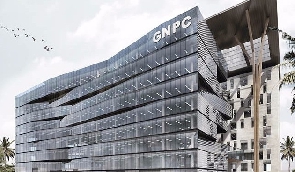 Ghana National Petroleum Corporation (GNPC)
Ghana National Petroleum Corporation (GNPC)
The Public Interest and Accountability Committee (PIAC) has raised concerns about the financial stability of the Ghana National Petroleum Corporation (GNPC) due to the government's $1 billion debt to the corporation.
According to PIAC, GNPC's financial viability is at risk if it is no longer allocated cash from the Petroleum Holding Fund by 2026, as required by the Petroleum Revenue Management Act.
PIAC's Technical Manager, Mark Agyemang highlighted that the government and its agencies owe GNPC nearly $1 billion, causing significant financial strain.
He noted that GNPC is frequently asked to pre-finance or guarantee loans for other state-owned enterprises, such as the Volta River Authority (VRA), Karpowership, the Electricity Company of Ghana (ECG), the Western Corridor Road Enclaves, and the Tema Oil Refinery.
“The government is responsible for the country's development. These state-owned enterprises can contribute through corporate social responsibility or investment. We have extensively documented cases where the government requests GNPC to pre-finance, provide guarantees, or loan funds to other state-owned enterprises.
“We have examples like VRA, Karpowership, ECG, the western corridor road enclaves, and the Tema Oil Refinery, where GNPC is currently owed almost a billion dollars. The state is supposed to repay them, but it is also the state funding them. This inconsistency causes financial headaches for the corporation,” he said.
He called for a review of P.N.D.C.L 64, the law establishing GNPC, to allow the corporation to achieve financial independence.
“If GNPC's governance structure is diversified enough, with appointees not solely from the government, independent bodies could also make board appointments to GNPC. This would enable them to reject certain demands from the government,” he said.
ID/MA
Watch the latest edition of BizTech below:
Ghana’s leading digital news platform, GhanaWeb, in conjunction with the Korle-Bu Teaching Hospital, is embarking on an aggressive campaign which is geared towards ensuring that parliament passes comprehensive legislation to guide organ harvesting, organ donation, and organ transplantation in the country.
Click here to follow the GhanaWeb Business WhatsApp channel